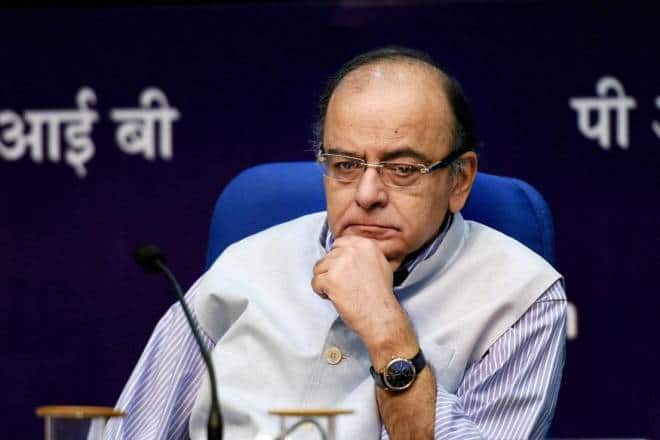Bengaluru: India on Friday said it had exposed Pakistan‘s double-talk on terror — using it as an instrument of foreign policy and also playing its victim — to the world as Islamabad upped its ante and linked, for the first time, peace in war-ravaged Afghanistan to the resolution of the Kashmir issue.
Indian Finance Minister Arun Jaitley, who is in Washington to attend International Monetary Fund (IMF) and World Bank meetings, said in hard-hitting comments that Pakistan was the global exporter of terrorism and “every terrorist incident” in the world had its stamp.
In an interview with NDTV, Jaitley said Pakistan was left alone today after India’s diplomatic offensive to isolate it in the region as well in the world.
“The fact that almost everybody said that we won’t attend the Saarc Summit (in Islamabad) speaks of the isolation in the region.
“Ultimately, if you use terrorism as an instrument of state policy, and every terrorist incident, a major terrorist incident anywhere in the world has Pakistani footprint around it, then ‘Brand Pakistan’ really identifies itself with global terror.”
Jaitley said Pakistan was playing terror victimhood to hoodwink the world but could no longer do that because its credibility had taken a hit after India exposed Islamabad’s terror doublespeak.
“All contrarian noises that they make that Pakistan is a victim et cetera, clearly, has established that the world is not willing to listen to them because of a very low credibility and a low track record as far as these matters are concerned.”
The remarks from the minister came as India and Pakistan are locked in an unprecedented diplomatic acrimony and border tension after the September 18 terror attack on a military base in Kashmir’s border town of Uri that killed 19 soldiers.
Days later, India carried out surgical strikes against terror launch pads and killed an unspecified number of terrorists in Pakistan-administered Kashmir.
As the tensions rose further, Pakistan on Friday passed a parliamentary resolution to express solidarity with Kashmiris and dismiss New Delhi’s claim that Jammu and Kashmir is an integral part of India.
The resolution, passed on the third day of the special joint session of Pakistan Parliament, urged the international community to carry out an independent investigation into “gross human rights violations” committed by security forces in Kashmir.
Pakistan also dismissed any possibility of India unilaterally revoking or altering the Indus Waters Treaty.
“The treaty is not time-barred and was never intended to be time or event-specific. It is binding on both India and Pakistan and has no exit provision,” Foreign Office spokesman Nafees Zakria said in a weekly media briefing in Islamabad, days after Prime Minister Narendra Modi said “blood and water cannot flow together”.
India’s threat to review the river water sharing pact, brokered by the World Bank and signed by the two countries in 1960, followed escalation in the bitter ties, triggered by an ongoing unrest in Kashmir blamed on Pakistan and furthered by the Uri assault and surgical strikes.
Since the militaries of the two countries have been regularly exchanging fire across the Line of Control (LoC) and International Boundary in Jammu and Kashmir in violation of the 2003 border truce, raising threats of war and sparking global concerns. The US on Thursday said the Kashmir issue was for the two countries to settle but wanted India and Pakistan “work through (their) differences” peacefully. “On the Kashmir issue, our position has not changed. We want this to be worked out between both sides.
We obviously want to see the tensions that exist right now be brought down and for dialogue to take ts place – meaningful dialogue to try to address these issues bilaterally between the countries,” State Department spokesperson John Kirby said in Washington.
Pakistan on the other told the US, its strained anti-terror ally in Afghanistan, that the “road to peace” in Kabul ran through Kashmir. “When you talk of peace, you cannot compartmentalise peace. You can’t segregate a section… You can have peace in Kabul and let Kashmir burn. That is not going to happen,” Pakistan Prime Minister’s special envoy on Kashmir Senator Mushahid Hussain Syed said at Washington-based think-tank Stimson Centre.
IANS

